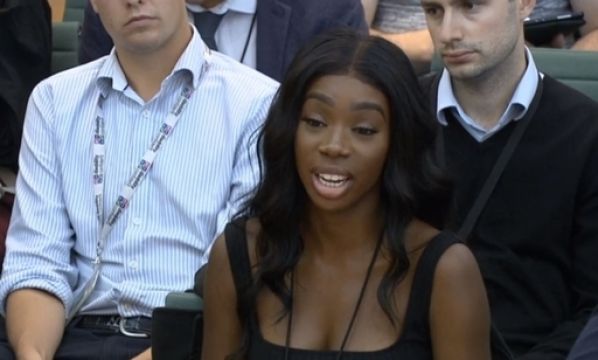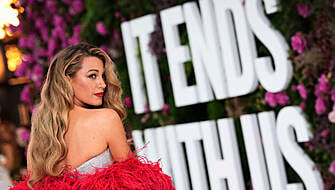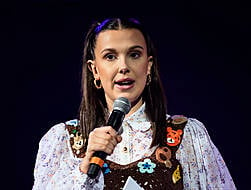Love Island’s Yewande Biala has accused Lucie Donlan of “racialised re-naming”, amid a row with her former co-star over bullying claims.
The women appeared in the 2019 series of the ITV2 dating show, when Donlan proved to be a controversial figure after she pursued boxer Tommy Fury while he was coupled up with influencer Molly-Mae Hague.
A row erupted after screenshots of old Instagram comments surfaced on social media and on Reddit, in which Donlan said of Biala: “She’s always bullied me.”
You refused to call me by my name because it was too “hard to pronounce” now you wanna say I bullied you !! Bullied 🤬
— Yewande (@yewande_biala) January 18, 2021
Advertisement
Biala, who is from Co Meath, responded to the bullying claims, writing on Twitter: “You refused to call me by my name because it was too ‘hard to pronounce’ now you wanna say I bullied you!! Bullied.”
Donlan has since called for an end to the feud and said she has received death threats.
Sharing a lengthy statement on Twitter, Biala wrote: “This is the last thing I’m going to say about this situation…..”
This is the last thing I’m going to say about this situation..... pic.twitter.com/oIwvSaCG04
— Yewande (@yewande_biala) January 23, 2021
Advertisement
The statement said: “I think one of my earliest memories of racialized re-naming was when I was exploring different secondary schools.
“One of the schools I was interested in, btw I didn’t end up going, asked me for my full name. Which is, Yewande Elizabeth Biala.
“After having difficulties pronouncing my name, she went forward and asked if we could just put it down as Elizabeth Biala, as it would be easier for everyone.
“In that moment, all I heard was that I didn’t matter, and I was an inconvenience.
“From that day I made it my mission to make sure people knew my name was important, after all that is my identity.
“Names are prominent identifiers that can often tell the story of one’s ethnicity and cultural background. My name means mother coming back, and I love it.
“There is a tendency for White European names and whiteness in general to be perceived as normative, whereas racial minorities with names of religious and ethnic origins may be seen as an inconvenience.
“Examples of name-based microaggressions include giving unwanted nickname(s).
“As I became older and developed my multicultural competence, I decided to stop trying to make others comfortable at my own expense.
“It’s important to recognise that asking for a nickname can feel invalidating, it makes me feel like a inconvenience also ascribing a nickname to a person or participating in racialized re-naming, can be distressing.
“You as an oppressor, have stripped me of my identity, you’ve taken my power in choosing how I want to be addressed.
“I corrected her multiple times, I didn’t mind, because you are going to get it right.
“There was a moment just before a challenge. This was after 3 weeks in.
“She mispronounced my name, I correct her again and her reply was ‘Yeah whatever you know what I mean.’
“I remember one of the producers put her arms around me.
“Being black on TV means not rising your voice, not being too defensive, because you don’t want to creative (sic) the narrative of being an angry black woman or being a bully.
“I am not a bully, it’s such a huge accusation and one that should be handled very seriously.
“And lastly, I encourage everyone to be aware of racialized re-naming and name-based teasing. I think we should all be working towards being better advocates and creating a different dynamic around these narratives.”
Donlan previously told Mail Online: “I said on the show I had trouble pronouncing Yewande’s name, it’s just what I’m like.
“And I asked if I could use a shortened abbreviated version of her name instead as a term of endearment – there’s nothing sinister to it.”







